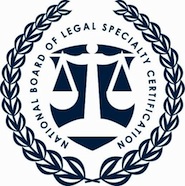


Maryland Traumatic Brain Injury Lawyer
is a certain medical condition that many people fear: Traumatic Brain Injury, or TBI. A common occurrence, in many types of accidents, a TBI can be received in a slip and fall, car accident, or train wreck. The common denominator is that when such an injury is received, it changes the life of the victim forever.
Lifelong physical damage and limited functioning can all be a part of traumatic brain injuries. These types of injuries usually fall into categories call "closed" and "penetrating."
Closed head injures happen when objects outside the body hit the skull. The object can be a hammer, wall, rock, or another item. Although there may be no broken skin (or minimal broken skin) surrounding the head, the damage to the brain is done inside, and is just as devastating.
Penetrating injuries involve foreign objects, like as spikes or bullets, which can get into the skull. Maryland traumatic brain injury lawyers handle cases with this type of damage to the brain. It is often very specific damage, because it mirrors the route the object took when it entered the brain. As a result, symptoms of the injury can vary widely.
"Primary" and "secondary" traumatic brain injuries are two types of harm that can be caused in the aforementioned ways. Primary damage occurs at the time of impact - it includes lacerations, nerve damage, blood clots, hematomas, bruises, contusions, and skull fractures.
Damage that makes itself apparent in the weeks or months following the injury is known as secondary damage. These types of injuries can include hematomas, edemas, fevers, infections, blood pressure changes, and increases in skull pressure. Or, you may have anemia, epileptic seizures, or alterations in heart, lung and digestive function. If or when this happens to you, you may want to seek out a Maryland traumatic brain injury attorney.
Your claim needs to be seen by Maryland traumatic brain injury attorneys to determine if it's wise for you to proceed with it. If you decide that it is, you may be entitled to compensation for any expenses related to your injury. This can include medical care, adaptive devices, homemaking services, and even money for the pain and suffering that you encountered.







